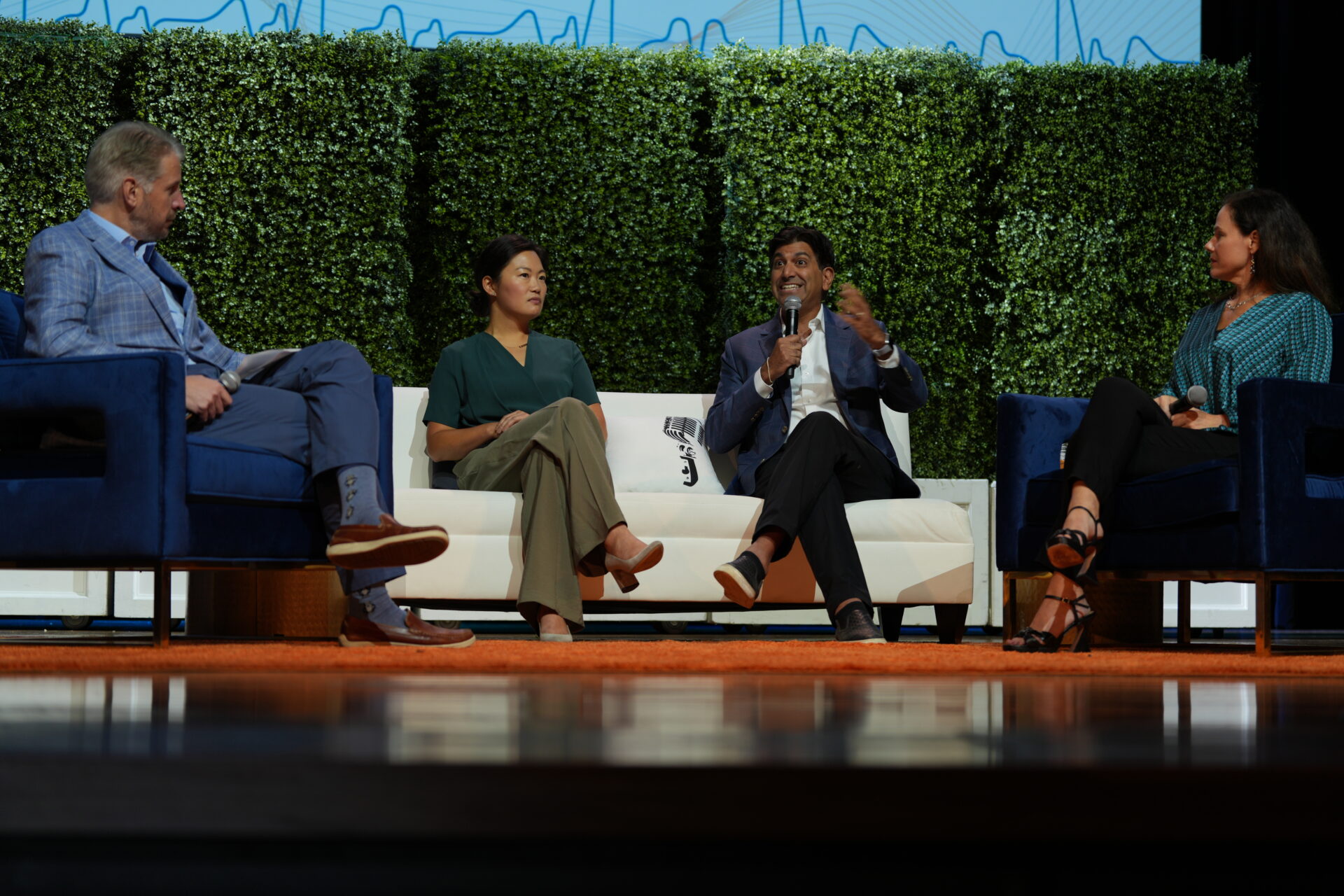Day One of the first Nashville Healthcare Sessions opened with the energy and excitement that comes from bringing many of the nation’s top minds and healthcare leaders – from Nashville and beyond – together to share ideas about where this industry is headed. And, doing it in a venue that exemplifies creativity, energy and – of course – Nashville itself: The Country Music Hall of Fame Theater.
Throughout the day, speakers shared stories that quickly revealed common themes. Whether discussing the nursing shortage or evaluating the potential for generative AI, these ideas permeated the individual conversations leading to an overarching glimpse of not just the “what” and “how” of the next few years for our industry, but also the “why.”
In short, it’s the patients. As Sam Hazen, CEO of HCA said during the opening fireside chat, in Nashville, we keep people at the center of the equation. Yes, there is a business element. Yes, healthcare is complex and difficult. Getting the partnerships and finances right is necessary, but people come first. To do that, Nashville has a unique opportunity and responsibility to drive healthcare forward by
- Attracting the best talent
- Solving problems in creative ways
- Creating the full ecosystem. We see that ecosystem here in music, and it’s just the same in healthcare.
Beyond that, here are a few of the themes. Each one was presented as an evolution of well-known, ongoing imperatives or challenges. Yet the opportunity and excitement for advancing the patient experience in this post-pandemic environment gives new urgency to the work ahead.
- Taking cost out of the system. This applies to all areas, and value-based care came up time and again. How? John Driscoll, President U.S. Healthcare and EVP of Walgreens Boots Alliance pointed to retail. He said, “Our colleagues and competitors are all focused on how we make healthcare better. We believe that we – retail – have a role to play in making it easier, lower cost and continuous.” That will happen through thoughtful partnerships between retail providers, acute care and new entrants creating novel solutions. Another angle is the need to reduce administrative costs. Time and again, panelists talked about the administrative burden that adds time and cost to the system. Speakers set the expectation that advancing artificial intelligence, better interoperability, automation and data analysis will all play a big part in streamlining the processes behind the delivery of care.
- This is the moment for alternative models of care delivery. During a lightning round, all three panelists in the Strategic Investments in Healthcare conversation agreed that healthcare will finally transition to a value-based model over the next several years. In addition, hospital at home was mentioned as an area of significant opportunity and a highlight for investors, as well as a unique opportunity to streamline and improve the patient experience.
- Innovation is vital, as always. But a word of warning: Innovators must know the problem they’re trying to solve. Point solutions aren’t sufficient. Any tool or initiative needs interoperability and seamless integration with other parts of the system to truly solve healthcare’s most pressing challenges. As Amy Waldron, Global Leader, Healthcare & Life Sciences Solutions at Google Cloud put it, “If we can’t figure out how to string individual tools together and create a care platform, it won’t work.” Similarly, each new solution needs a clear economic model. The many brilliant creators who are working to make healthcare better can’t forget to ask how it will be paid for, what the return will be and – again – how it will be integrated. Julian Harris, Operating Partner at Deerfield PE and CEO of ConcertoCare also noted the need for change management when implementing any innovation. Without the work to create new habits and processes, even the most profound solutions will struggle to take hold.
- Healthcare can lead on AI. The opportunities are incredible for artificial intelligence across industries, and there was excitement throughout the day for what healthcare can do with this rapidly advancing technology. Julie Yoo, General Partner at Andreessen Horowitz showcased the opportunity through a self-professed contrarian view. She said, “We’ve all lamented the fact that healthcare is a laggard in adopting software. Thinking about how to bring AI into our universe is a leapfrog opportunity. Other industries are stuck in a sunk cost bias.” Their frame of reference, she suggested, is not the promise of AI but the years of time and investment placed in training people to use different pieces of technology products and going through change management. That makes it harder to justify investing in another technology, no matter how revolutionary.
Come back tomorrow for our Day Two recap.
